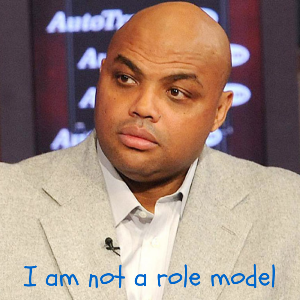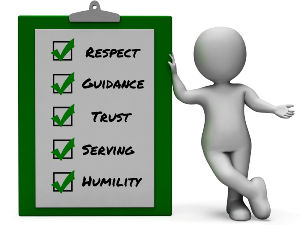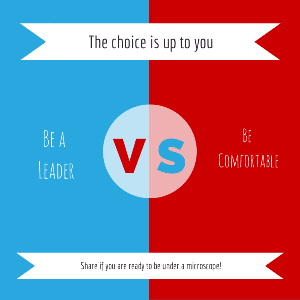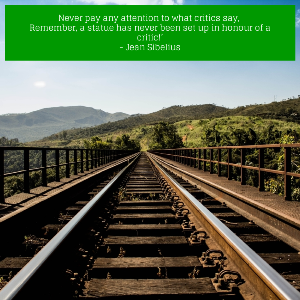Who are professionals?
When I was a kid, I used to think that all adults = professionals. The truth is, we aren’t all professionals. Most of us are just getting by, actively disengaged and making money to pass the time.
The Truth is We Don’t Love Our Work (shocker I know)
Lots of people dislike their jobs. Some statistics claim up to 70% of the American workforce.
If they hate or even dislike their jobs, why would they try to get better at them? If you lack passion to continually get better at your craft, you are hardly a professional, you just have a job.
Professional (prəˈfeSHənl) – a person engaged or qualified in a profession.
Qualified, maybe. We have a lot of degrees floating around in this country, in fact, more than ever. But engaged? Not at all. Engagement requires interest. Most of us just show up, a far cry from engagement.
Money and Status come to mind as motivators to get people more engaged. However, those are empty goals if you haven’t already figured that out. It took me a while, but I learned that lesson the hard way.
A Case Study
I hate to see wasted potential. Their organization could have been great, and deep down there is hope. Their company used to have great culture and it used to have actively engaged people throughout the company.
As I spoke about this to a few friends near the top (but not at the top) of this organization, I shared my thoughts after being prompted about their current personal situations within the company.
I told them that the only way to improve – I hesitate to use the word “fix” because there’s no such thing as a “finished product” when it comes to businesses – their situation is for leadership to facilitate connections like never before.
Ideas don’t come from one source or even one office. They come from the field. They come from all over. And if there is constant communication and fellowship than ideas will begin to flow at light speed.
And you need as many ideas as possible because lots are going to be junk. But if you can sift through the junk, you can find the gold.
The short answer, they need to create a better culture to improve their current situation. Fortunately, there is more than enough technology out there today with Skype & Google Hangouts readily available, online forums & blogs as options instead of disengaging/boring email chains, and systems like ONOR that can be used for team member recognition even with a spread out organization.
But if they continue to drift apart, they will not get back to the steep ascent they were on years ago.
Happiness is Possible
There is a documentary called Happy about what makes us tick. In this documentary Dr. Tim Kasser of Knox College talks about about 3 “vanity metrics” (he calls them “extrinsic goals”) that many of us think will bring us happiness:
- Money – How much we make
- Status – How we are perceived by others
- Image – How we physically look
70% of the people in this country dislike their work. And these are the things many of us are looking for to make us happy. Even if we find it in our work- which is highly unlikely – we’re not going to be happy with what we find.
- “How much money does the position offer?”
- “How quick will I be eligible for management opportunities?”
But what if we measured how happy we were based on the intrinsic goals Dr. Kasser suggested actually bring us happiness:
- Personal Growth – Improving our craft and learning new things
- Relationships – Facebook friends and followers on Twitter DO NOT apply
- Desire to Help – Selflessly helping others and knowing your work has made a difference in others’ lives
And what if we were able to pursue these intrinsic goals through our work? Would 70% of us still dislike our work? Not 70%, but sure some people are going to be miserable no matter what :).
When employers recognize this, they can begin to change how they run their organizations.
I went to Dig South, a tech/startup conference last week and had the opportunity to hear John Smith, an entrepreneur and company culture expert, speak about how to grow a great culture.
“Some people think I like to sit around and sing Kumbaya all day. NO! I’m a capitalist!
I know that if I have a team of 5 happy people I can outperform a team of 20 miserable people any day of the week. Happy people are more productive at work. That’s the bottom line. Statistics show as much as 9 times happier when it comes to programmers and 8 times happier when it comes to sales people.” – John Smith*
So a happy work environment is key for an engaged workforce. If we can create more connections with our coworkers, give them the opportunities for personal growth, and show them that they are making a difference in the world we are all on our way to happier organizations.
This doesn’t mean you can pay people minimum wage as long as you’re offering these perks. Nice try! You have to be even on all other levels. This is what allows companies to pull away and achieve greatness while some remain stagnant.
So Why The Case Study?
When I spoke to those friends I had the chance to explain how to strengthen their culture. It’s very simple:
Facilitate more of the connections, recognize more people for hard work (not just with money), pay people fairly, recognize accomplishments other than sales, and most importantly get out of the way.
This isn’t just a lesson for that team, it’s a lesson for all business owners. How can you implement those ideas into your company culture?
I heard Noah Kagan, an entrepreneur and self-proclaimed diarist, talk on a podcast a few months back about throwing parties and events. He said he was not the smartest person in the room, far from it. But when he assembled a bunch of great people and a bunch of great things happened at his party, everyone thought he was a genius. He facilitated connections that never would have been made if he didn’t put all those people in the same room at once.
In some ways, he was a genius for having the foresight to see the potential in the situation. How can you bring people together in your company?
Facilitate the connections and let the people in your organization share their ideas. Create a happy work environment by getting your people engaged and your organization will begin to thrive.
—
What are you thoughts on happiness and how it affects your work?
I look forward to hearing from you below or on Twitter (@mikemccann3), have a great weekend!
Want posts send directly to your email?
Fill out the simple form below and check your email to confirm!
*I was not able to capture the source of the data while scribbling notes in this presentation but he did cite someone. Also, this quote may be slightly different that what he said in a few places due to sloppy note-taking on my part.








